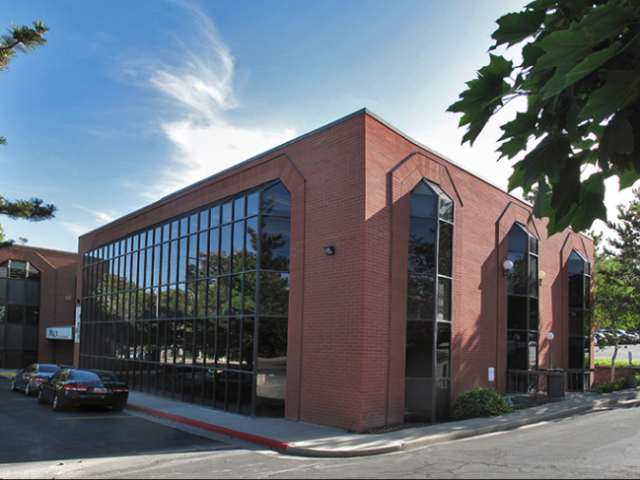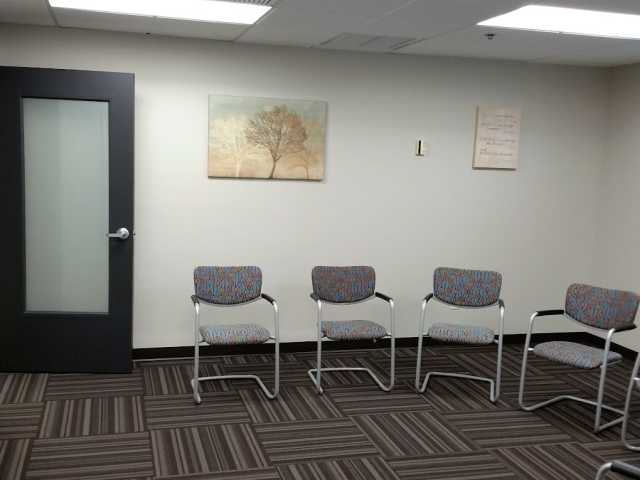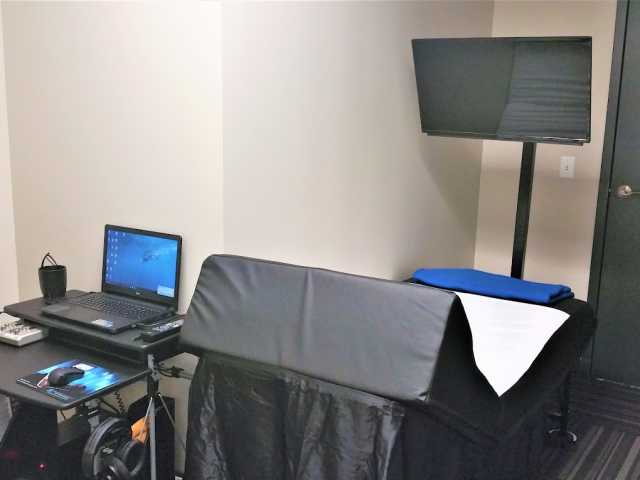Holladay, Utah, United States
Turning Point Centers Holladay
Verified
Verified
This provider’s information has been quality-checked by Recovery.com’s Research Team for accuracy and completeness, including center verification through appropriate third-party organizations.
Joint Commission Accredited
The Joint Commission accreditation is a voluntary, objective process that evaluates and accredits healthcare organizations (like treatment centers) based on performance standards designed to improve quality and safety for patients. To be accredited means the treatment center has been found to meet the Commission's standards for quality and safety in patient care.
Provider's Policy
Please call our admissions team for more information on insurance coverage. A knowledgeable member of our team can answer any financial questions you might have, and they can also reach out directly to your insurance carrier to verify and maximize your benefits. This service is free and puts you under no obligation to choose our programming.
Estimated Cash Pay Rate
The cost listed here (Call for Rates) is an estimate of the cash pay price. Center pricing can vary based on program and length of stay. Contact the center for more information. Recovery.com strives for price transparency so you can make an informed decision.
About Turning Point Centers Holladay
Turning Point Holladay provides day treatment, intensive outpatient, and general outpatient treatment for addiction and co-occurring mental health conditions. They take a non-12-Step approach to treatment, prioritizing physician-led care focused on underlying causes of addiction and developing practical tools for recovery. Turning Point offers a full continuum of care and a lifetime of aftercare for continuous connection and support.
Clinically-Led Care for Addiction and Co-Occurring Conditions
Turning Point Holladay treats primary substance use disorders and co-occurring mental health disorders, including depression, anxiety, bipolar disorder, attention deficit hyperactivity disorder (ADHD), obsessive compulsive disorder (OCD), certain eating disorders (binge eating and ARFID), trauma, and more. Turning Point Holladay’s experienced staff, including physicians, clinical mental health counselors, addiction counselors, and clinical social workers, personalize treatment to each client’s diagnoses and needs. An initial assessment determines effective therapies and approaches.
Evidence-Based and Trauma-Informed Therapy Addressing Underlying Issues
As a non-12-Step center, Turning Point Holladay uses a variety of evidence-based and trauma-informed therapies in both group and 1:1 settings. These include cognitive behavioral therapy (CBT), dialectical behavioral therapy (DBT), eye movement desensitization and reprocessing (EMDR), acceptance and commitment therapy (ACT), and medication-assisted treatment as needed for recovery maintenance. Turning Point Holladay offers 3 weekly 1:1 therapy sessions and family counseling, weekly or bi-weekly visits with their physician, and daily group therapies give and receive support.
Continuous, Supportive Care for Long-Term Recovery
Turning Point offers a full continuum of care, with multiple levels of outpatient care and nearby sober living to support long-term recovery. Each client has a dedicated case manager to guide and streamline treatment. Turning Point’s lifetime aftercare includes recurring alumni events and activities, volunteer opportunities, group meetings, and online support with private social media groups.
Read More
Insurance Accepted
Provider's Policy:Please call our admissions team for more information on insurance coverage. A knowledgeable member of our team can answer any financial questions you might have, and they can also reach out directly to your insurance carrier to verify and maximize your benefits. This service is free and puts you under no obligation to choose our programming.
Non-12-Step Outpatient Treatment
Turning Point Holladay offers comprehensive day treatment, intensive outpatient, and general outpatient care with a non-12-Step approach. Clients receive regular visits with their physicians and in-depth assessments upon admission. Turning Point’s supportive environment promotes peer connections and creates a positive, recovery-focused community.
Compassionate Dual-Diagnosis Care
Turning Point Holladay treats co-occurring mental health conditions to address both the symptoms and root causes of addiction. Their staff, including clinical mental health/addiction counselors and a clinical social worker, lead evidence-based therapies to help clients uncover contributing issues and take proactive steps towards recovery. Co-occurring conditions treated include bipolar disorder, anxiety, trauma, depression, OCD, binge eating disorder and avoidant/restrictive food intake disorder (ARFID), gender dysphoria, and ADHD.
Teaching Practical Skills for Recovery
Turning Point Holladay offers psychoeducation and workshops to teach coping skills, life skills, and communication skills. They educate clients and loved ones on addiction and recovery, helping them understand their condition(s) and triggers. Clients participate in process groups, gender-specific groups, shame resilience groups, and create robust recovery management plans as they progress towards independent living.

Center Overview
Estimated Cash Pay Rate

Treatment Focus
This center treats primary substance use disorders and co-occurring mental health conditions. Your treatment plan addresses each condition at once with personalized, compassionate care for comprehensive healing.

Care Options








Treatment
Specializations
Alcohol
Using alcohol as a coping mechanism, or drinking excessively throughout the week, signals an alcohol use disorder.
Co-Occurring Disorders
A person with multiple mental health diagnoses, such as addiction and depression, has co-occurring disorders also called dual diagnosis.
Drug Addiction
Drug addiction is the excessive and repetitive use of substances, despite harmful consequences to a person's life, health, and relationships.
Eye Movement Therapy (EMDR)
Lateral, guided eye movements help reduce the emotional reactions of retelling and reprocessing trauma, allowing intense feelings to dissipate.
Non 12 Step
Non-12-Step philosophies veer from the spiritual focus of the 12-Steps and instead treat the disease of addiction with holistic or secular modalities.
Opioids
Opioids produce pain-relief and euphoria, which can lead to addiction. This class of drugs includes prescribed medication and the illegal drug heroin.
Approaches
Evidence-Based
A combination of scientifically rooted therapies and treatments make up evidence-based care, defined by their measured and proven results.
Holistic
A non-medicinal, wellness-focused approach that aims to align the mind, body, and spirit for deep and lasting healing.
Non 12 Step
Non-12-Step philosophies veer from the spiritual focus of the 12-Steps and instead treat the disease of addiction with holistic or secular modalities.
Therapies
1-on-1 Counseling
Patient and therapist meet 1-on-1 to work through difficult emotions and behavioral challenges in a personal, private setting.
Meditation & Mindfulness
A practiced state of mind that brings patients to the present. It allows them to become fully aware of themselves, their feelings, and the present moment.
Art Therapy
Visual art invites patients to examine the emotions within their work, focusing on the process of creativity and its gentle therapeutic power.
Family Therapy
Family therapy addresses group dynamics within a family system, with a focus on improving communication and interrupting unhealthy relationship patterns.
Life Skills
Teaching life skills like cooking, cleaning, clear communication, and even basic math provides a strong foundation for continued recovery.
Psychoeducation
This method combines treatment with education, teaching patients about different paths toward recovery. This empowers them to make more effective decisions.
Conditions We Treat
Grief and Loss
Grief is a natural reaction to loss, but severe grief can interfere with your ability to function. You can get treatment for this condition.
Anger
Although anger itself isn't a disorder, it can get out of hand. If this feeling interferes with your relationships and daily functioning, treatment can help.
Anxiety
Anxiety is a common mental health condition that can include excessive worry, panic attacks, physical tension, and increased blood pressure.
Bipolar
This mental health condition is characterized by extreme mood swings between depression, mania, and remission.
Burnout
Burnout entails mental and physical exhaustion, and leads to a severe lack of fulfillment. This condition is often caused by overwork.
Chronic Pain Management
Long-term physical pain can have an affect on mental health. Without support, it can also impact your daily life and even lead to addiction.
Codependency
Codependency is a pattern of emotional dependence and controlling behavior. It's most common among people with addicted loved ones.
Depression
Symptoms of depression may include fatigue, a sense of numbness, and loss of interest in activities. This condition can range from mild to severe.
Post Traumatic Stress Disorder
PTSD is a long-term mental health issue caused by a disturbing event or events. Symptoms include anxiety, dissociation, flashbacks, and intrusive thoughts.
Stress
Stress is a natural reaction to challenges, and it can even help you adapt. However, chronic stress can cause physical and mental health issues.
Substances We Treat
Alcohol
Using alcohol as a coping mechanism, or drinking excessively throughout the week, signals an alcohol use disorder.
Benzodiazepines
Benzodiazepines are prescribed to treat anxiety and sleep issues. They are highly habit forming, and their abuse can cause mood changes and poor judgement.
Chronic Relapse
Consistent relapse occurs repeatedly, after partial recovery from addiction. This condition requires long-term treatment.
Co-Occurring Disorders
A person with multiple mental health diagnoses, such as addiction and depression, has co-occurring disorders also called dual diagnosis.
Cocaine
Cocaine is a stimulant with euphoric effects. Agitation, muscle ticks, psychosis, and heart issues are common symptoms of cocaine abuse.
Drug Addiction
Drug addiction is the excessive and repetitive use of substances, despite harmful consequences to a person's life, health, and relationships.
Heroin
Heroin is a highly addictive and illegal opioid. It can cause insomnia, collapsed veins, heart issues, and additional mental health issues.
Methamphetamine
Methamphetamine, or meth, increases energy, agitation, and paranoia. Long-term use can result in severe physical and mental health issues.
Opioids
Opioids produce pain-relief and euphoria, which can lead to addiction. This class of drugs includes prescribed medication and the illegal drug heroin.
Aftercare
Experience
Personal Amenities
Amenities
Activities
Off-Site Activities
We love hearing about your treatment experience
Help individuals and families seeking treatment by sharing your first-hand experience with this treatment provider. Review Guidelines.























